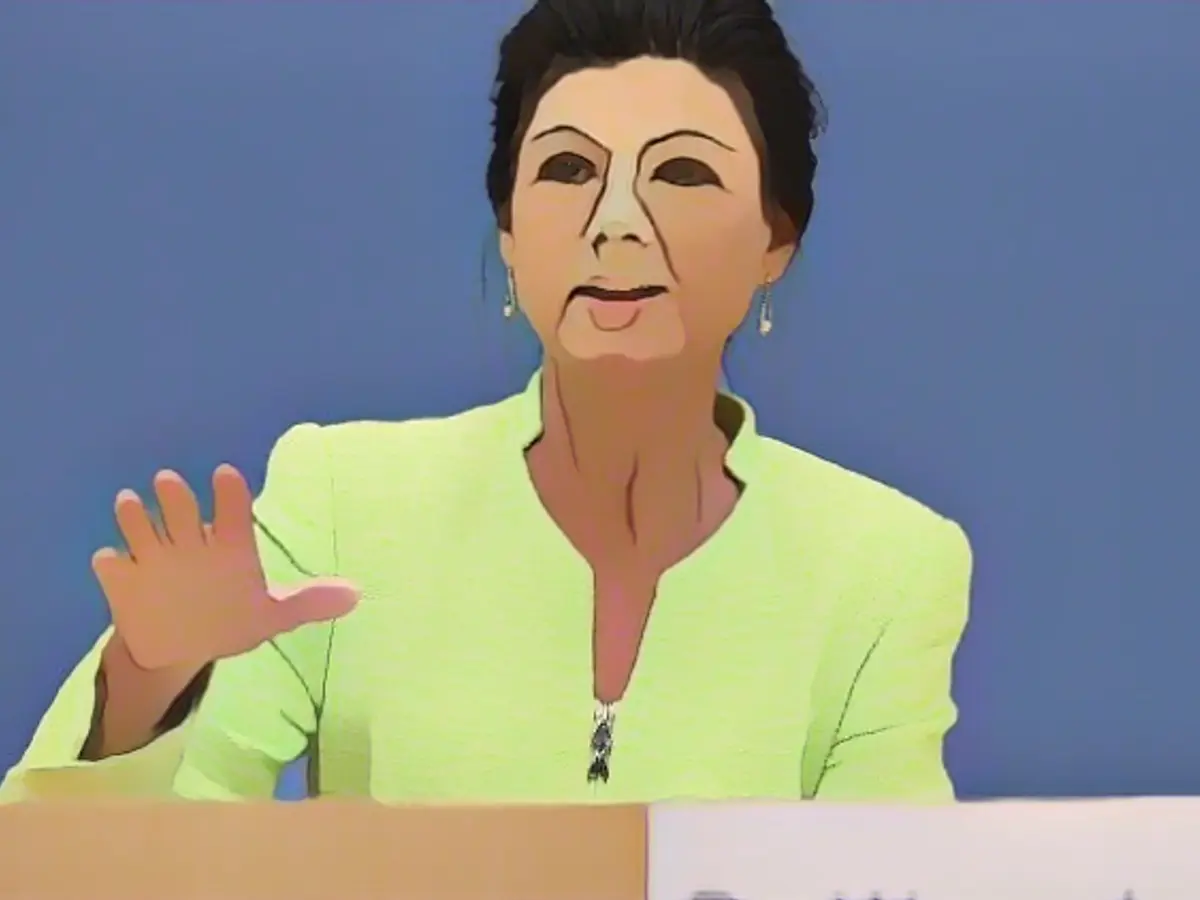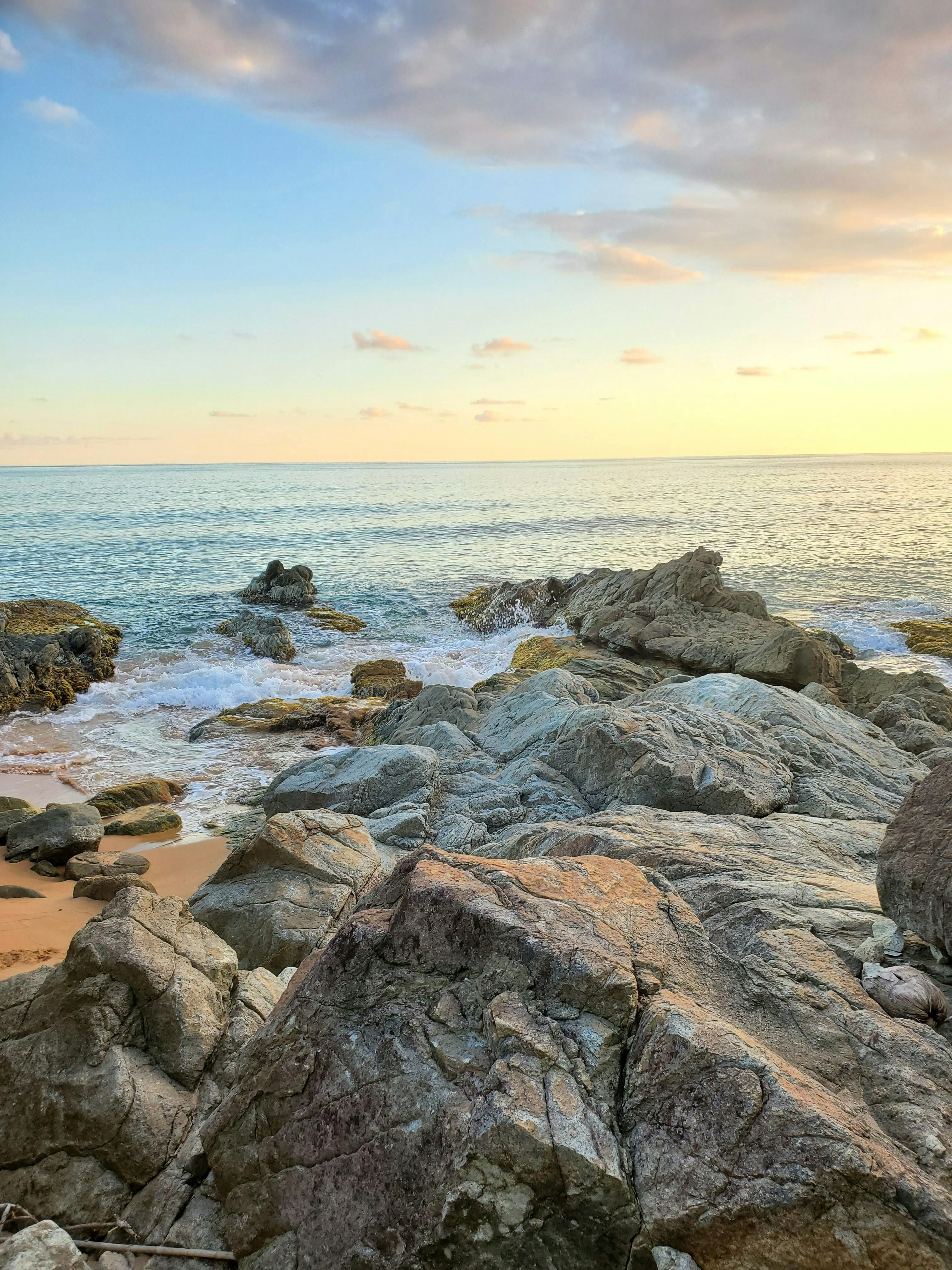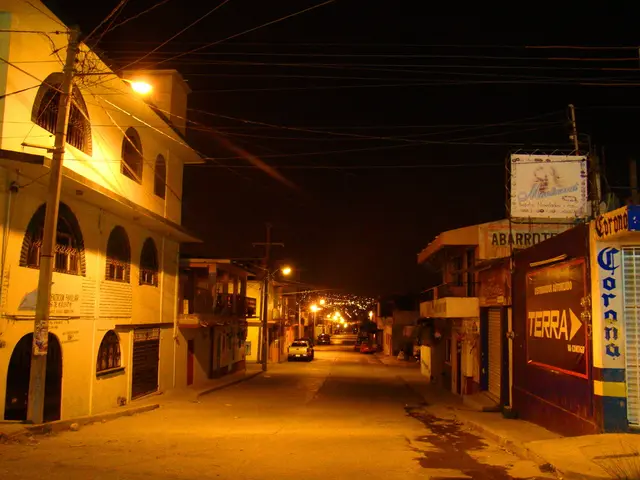Wagenknecht Alliance Set to Debut in Bundestag Next Week
In the aftermath of her departure from the Left Party, Sahra Wagenknecht and her fellow nine MPs will introduce their own group in the Bundestag next week. The "Sahra Wagenknecht Alliance" will have its formal introduction on the 12th of December and is expected to apply for group status shortly thereafter, according to a spokesperson to the German Press Agency.
Wagenknecht and her associates departed from the Left Party in October, resulting in the dissolution of their previous parliamentary group, which previously consisted of 38 members. The remaining 28 Left Party MPs have already applied for group status and are hopeful for swift recognition from the Bundestag. A resolution by the plenary is required to establish the rights of a new group within parliamentary operations.
Unlike a parliamentary group, a group holds fewer privileges, such as limited question-asking opportunities towards the government. Moreover, it receives fewer financial resources from the government coffers. The question remains whether the Bundestag will acknowledge both groups – the Left Party and the Wagenknecht Group – simultaneously. The positions of both groups within the plenary chamber have yet to be determined.
Upon the dissolution of the Left Party parliamentary group, 108 staff members may lose their employment, including political advisors and office staff. The employment prospects for these individuals will ultimately be influenced by the financial resources of the new groups. It is highly unlikely that all of them will secure employment.
Additional Insights:
- Sahra Wagenknecht and her group of nine MPs aim to establish their new alliance as a separate parliamentary group in the German Bundestag during the upcoming weekly session.
- The Bundestag requires a resolution to outline the parliamentary rights of the newly formed Wagenknecht group, similar to the application submitted by the remaining Left Party MPs due to their own group's disbandment.
- The Wagenknecht group anticipates fewer privileges than the previous Left Party parliamentary group, including reduced financial support and fewer question-asking opportunities.
Further Analysis:
The entry and parliamentary rights of both the Sahra Wagenknecht Alliance (BSW) and the remaining Left Party group depend on various factors and recent developments:
- BSW’s Parliamentary Status:
- Threshold for Entry: To secure standing in the Bundestag, the BSW needs to achieve at least 5% of the national vote, which may prove challenging due to lower support in western Germany as opposed to eastern Germany.
- Regional Support: The BSW has received significant support in eastern German states such as Brandenburg, Saxony, and Thuringia, with vote shares of 12%-16% in recent state elections.
- Left Party’s Parliamentary Status:
- Current Position: The Left Party has been an influential force in German politics, with a notable presence in eastern states and participation in governmental roles in Bremen and Mecklenburg-Vorpommern.
- Disruption and Reorganization: In October 2023, prominent member Sahra Wagenknecht and several supporters departed to form the BSW, leading to the dissolution of the Left Party’s official faction in the Bundestag, which was then reconstituted with diminished status.
- Future Prospects: The Left Party may still gain access to the Bundestag if it wins at least three directly elected seats, as it did in the 2021 election, despite receiving only 4.9% of the national vote.
- Impact on Parliamentary Dynamics:
- Potential Impact: Should the BSW fail to enter the Bundestag, it would represent a significant setback for Wagenknecht's political ambitions. On the other hand, if the Left Party manages to secure a reduced status, it could retain some influence in the Bundestag. However, this would likely be less prominent than its previous political role.
- Media Attention and Public Perception:
- Media Engagement: Despite the BSW's criticisms of media coverage, Sahra Wagenknecht has maintained a presence on German television political talk shows.
- Policy Positions:
- BSW’s Policies: The BSW has advocated for asylum procedures to occur outside the EU and the deportation of criminal refugees, drawing comparisons to the far-right Alternative for Germany (AfD).
- Left Party’s Policies: The Left Party, however, has historically opposed stricter asylum policies and is a strong advocate for anti-militarism and anti-fascism.
In conclusion, the parliamentary rights of both the BSW and the remaining Left Party group are dependent on the outcome of the 2025 German federal election. The BSW struggles to attain the 5% threshold, while the Left Party may still find representation if it secures three directly elected seats. The dynamics of German politics may shift based on the outcomes of these developments, with the BSW's strong eastern German support playing a crucial role in shaping the political landscape.








